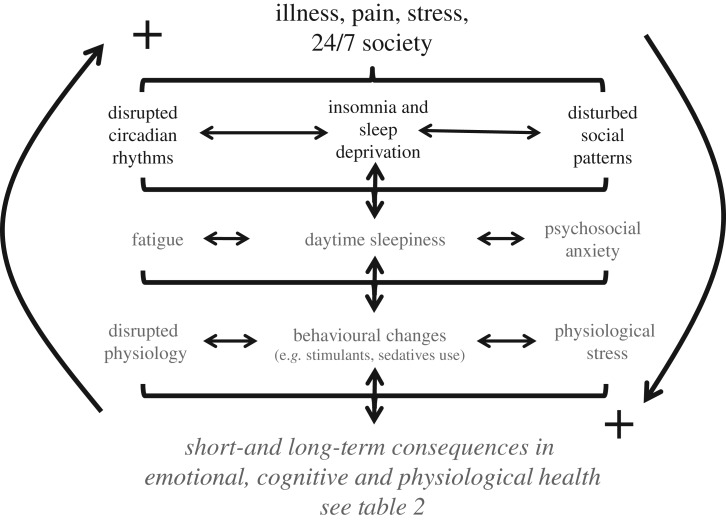Figure 7.
The drivers of emotional, cognitive and physiological poor health. Factors such as Illness, illness resulting in pain, stressful situations and/or the impact of shift work and the 24/7 society can all lead to disrupted circadian rhythms, insomnia, sleep deprivation and abnormal patterns in social behaviour. Collectively these problems can give rise to fatigue, daytime sleepiness and psychosocial anxiety arising from altered patterns of social interaction. These altered behaviours will, in turn, disrupt physiology (e.g. metabolic abnormalities), drive abnormal patterns of behaviour (promote the use of stimulants and sedatives) and stimulate physiological stress (chronic release of cortisol and adrenaline). Collectively, this cascade of events underpins short- and long-term somatic and mental illness (table 2). Furthermore, it is important to appreciate that many of these interactions are bi-directional, acting to reinforce each other via multiple positive feedback loops.

